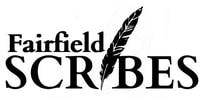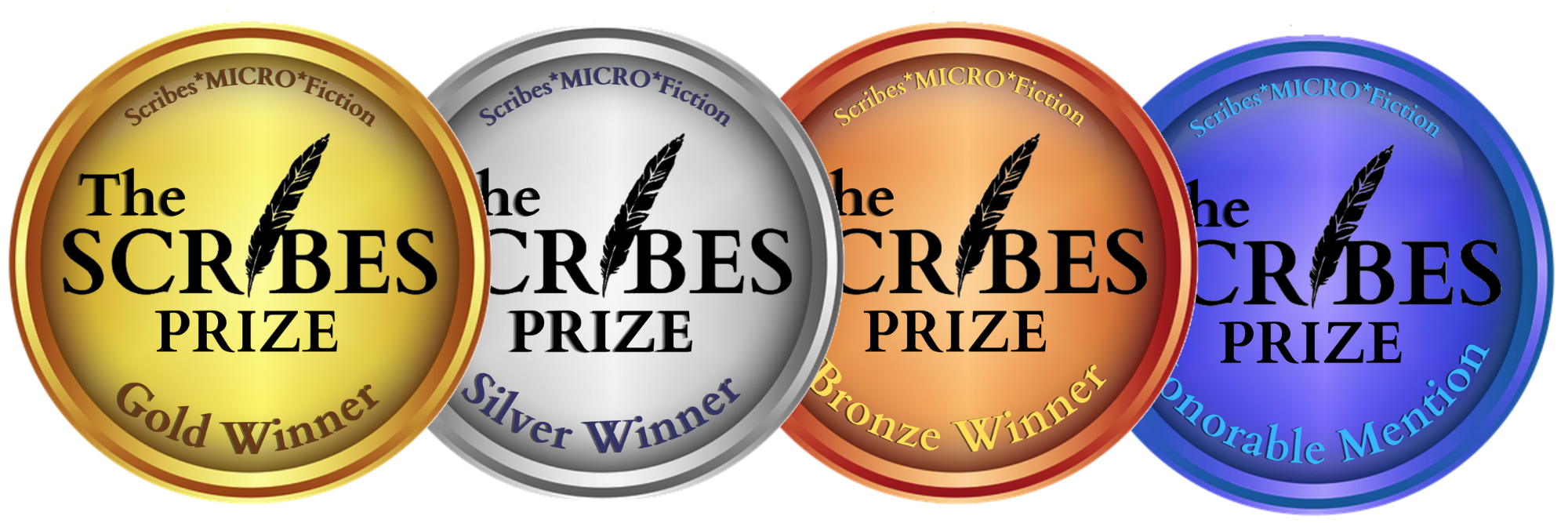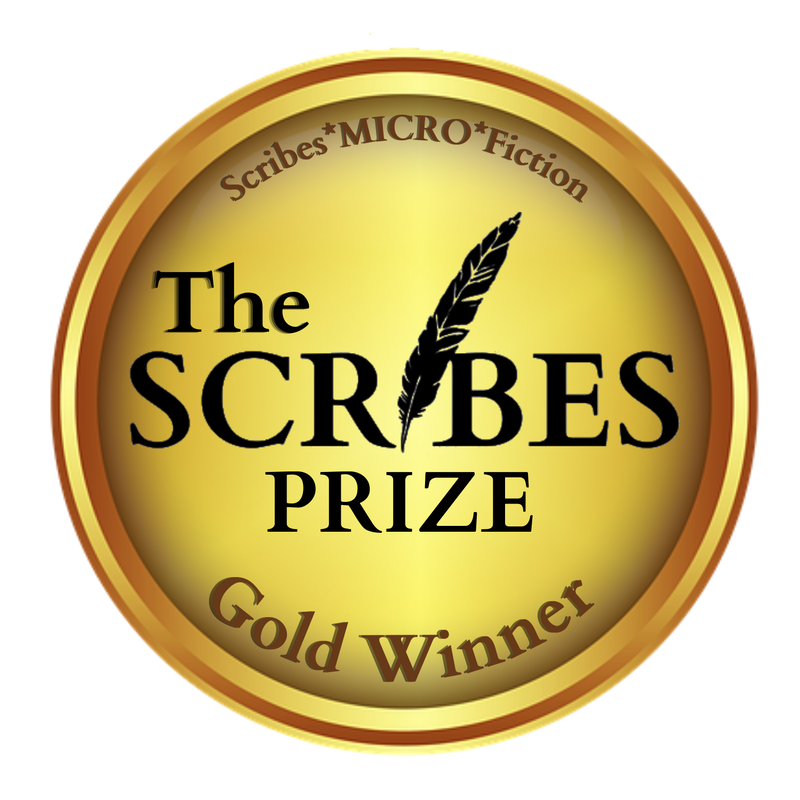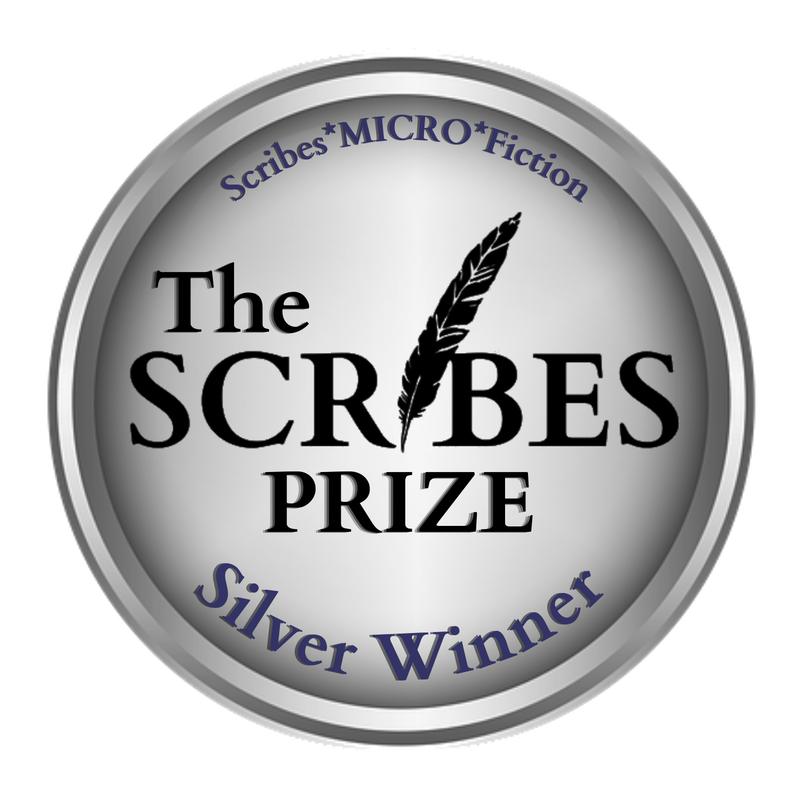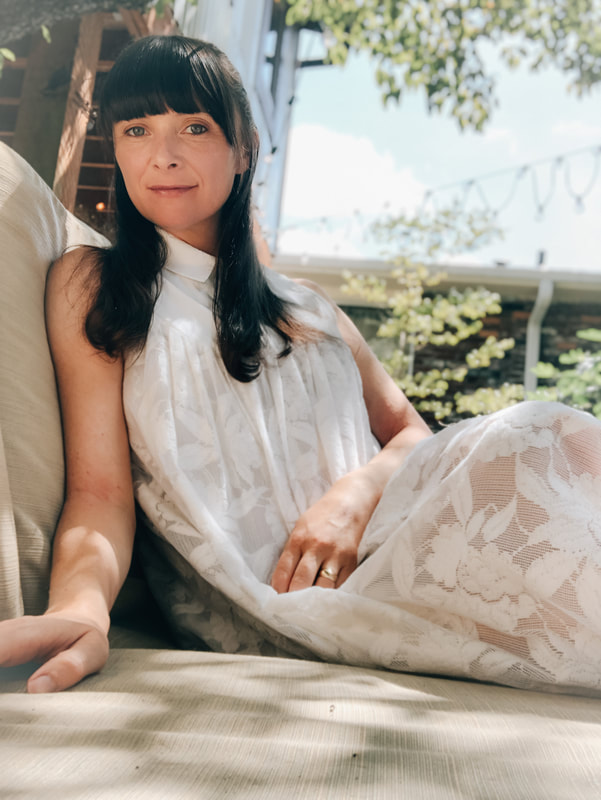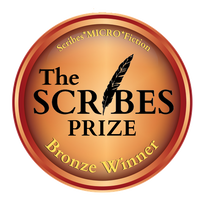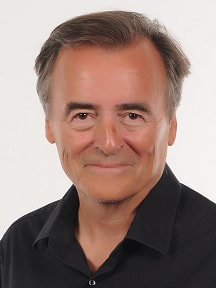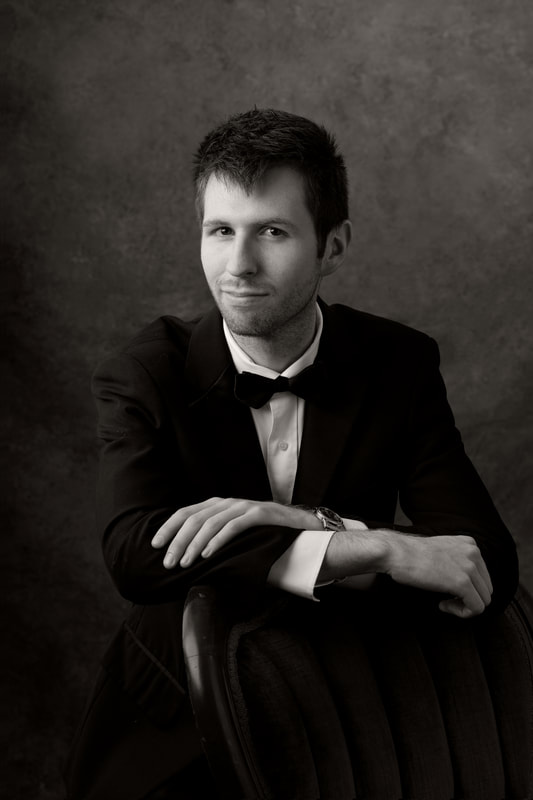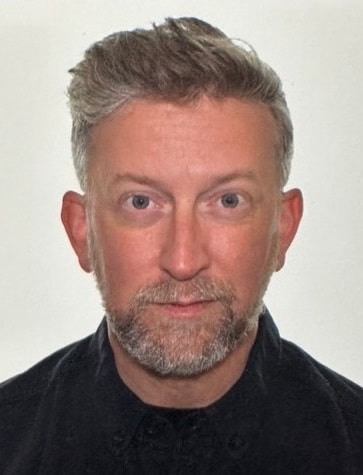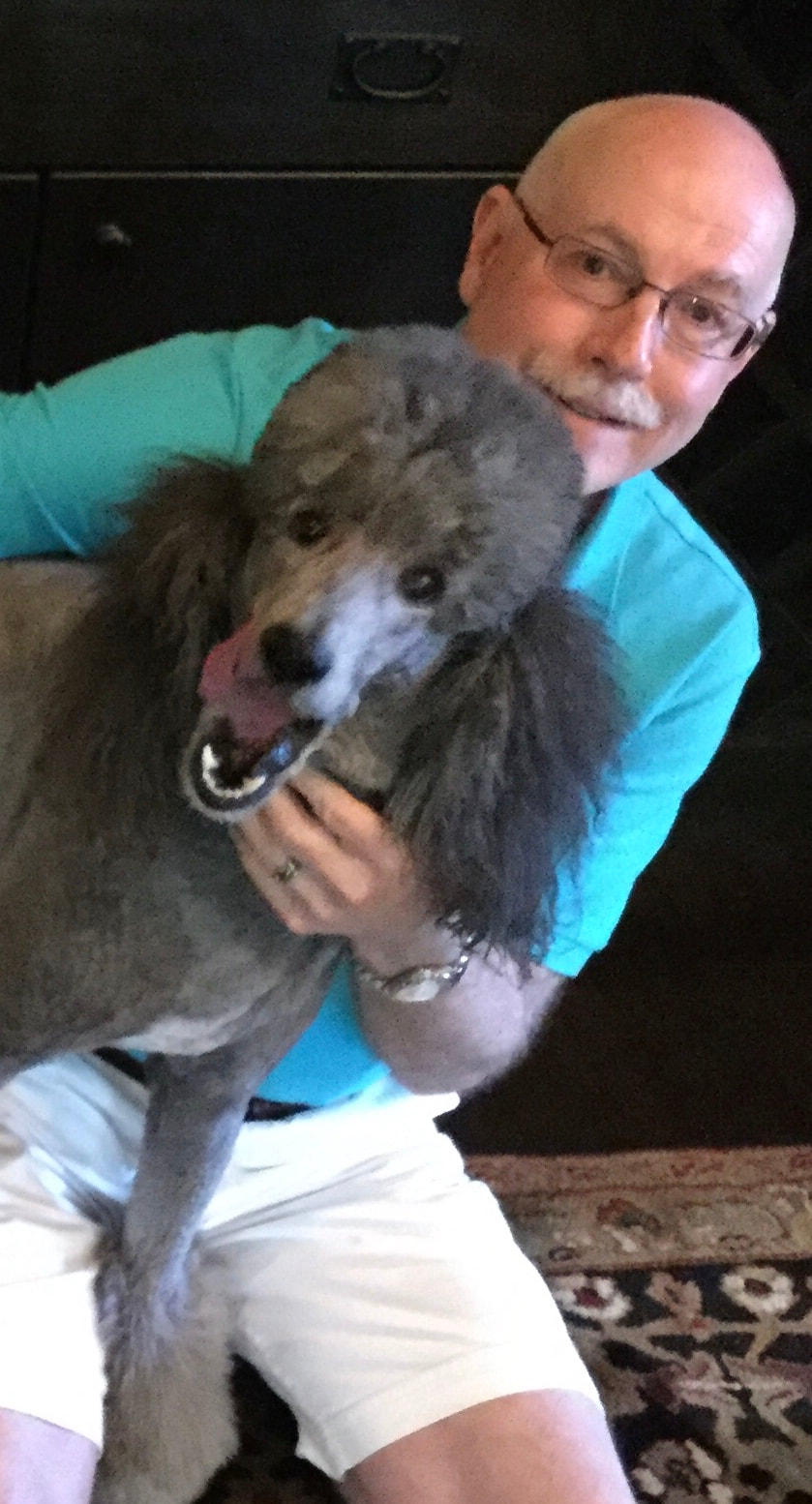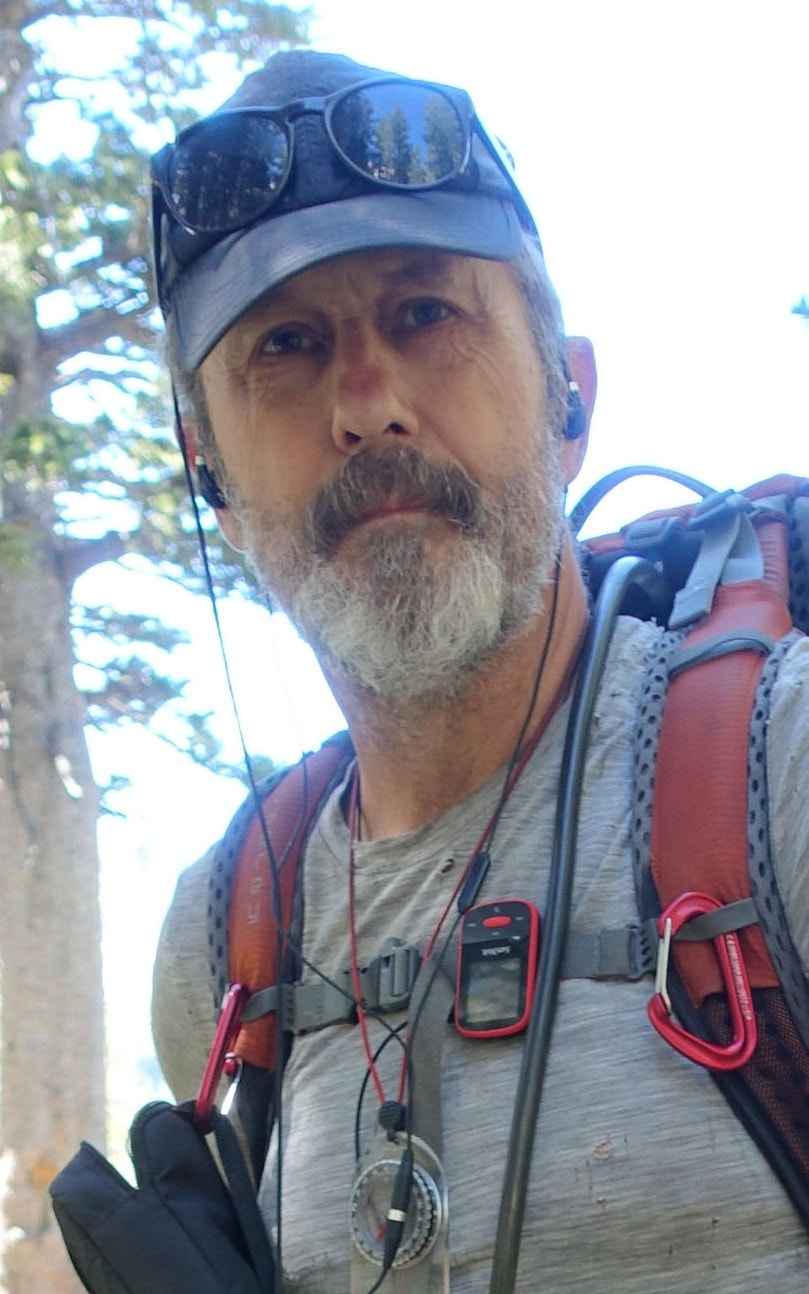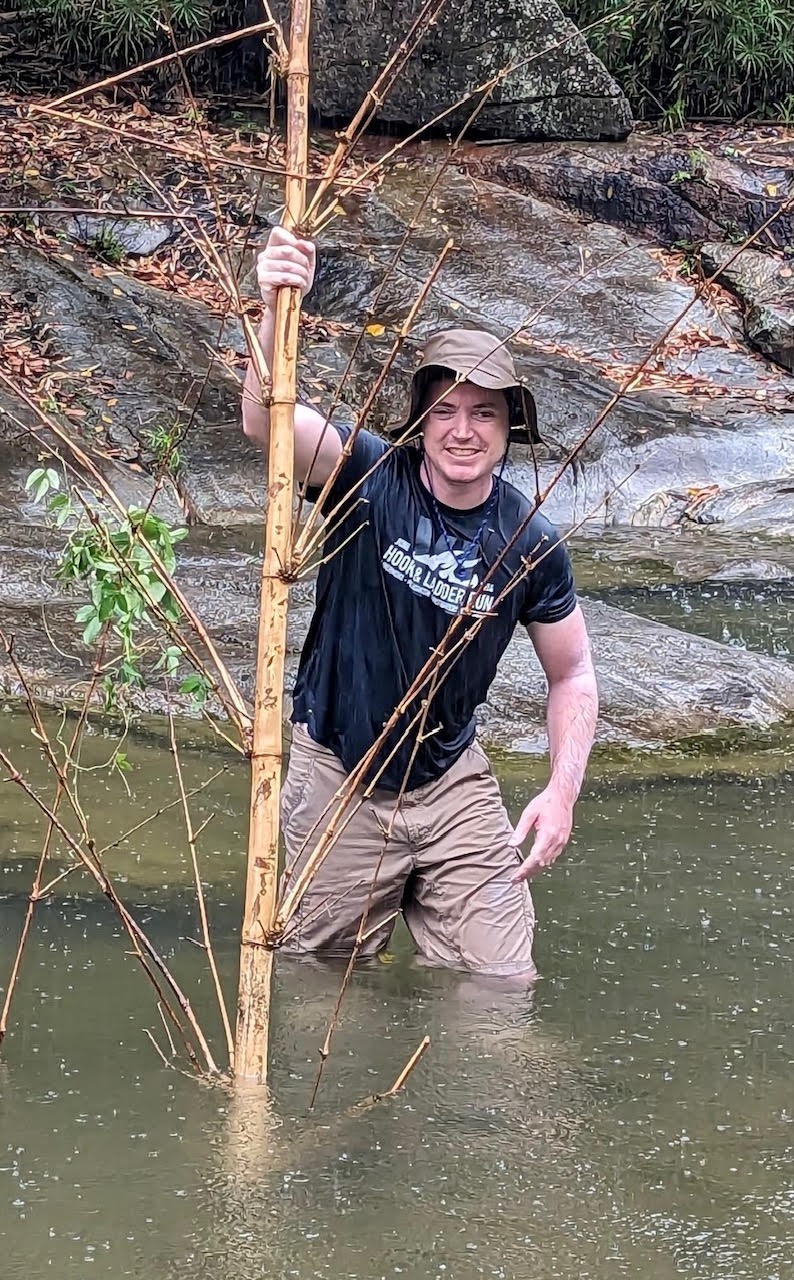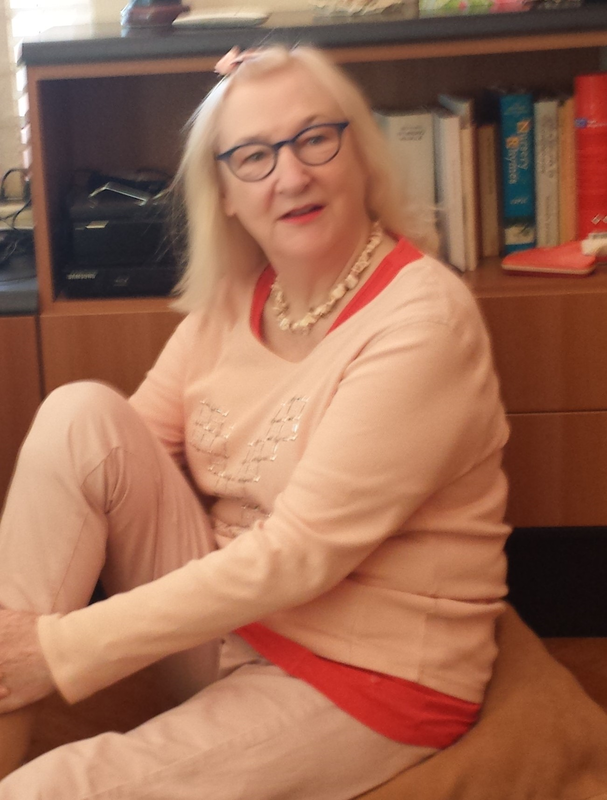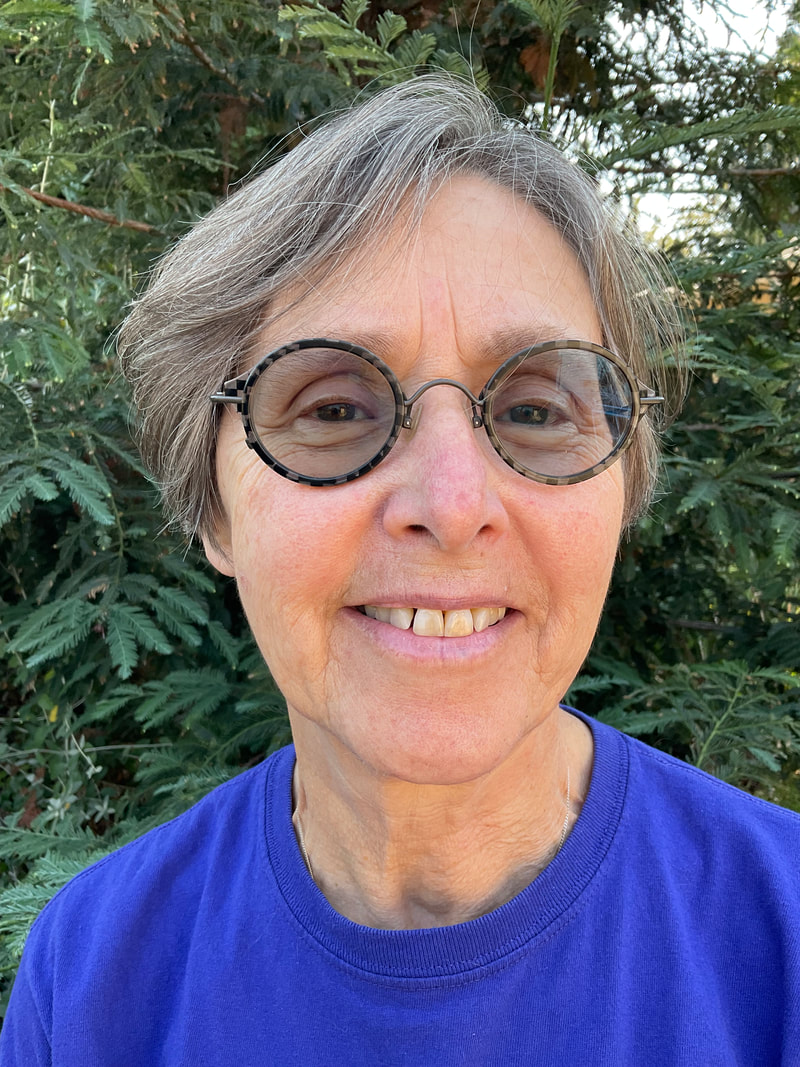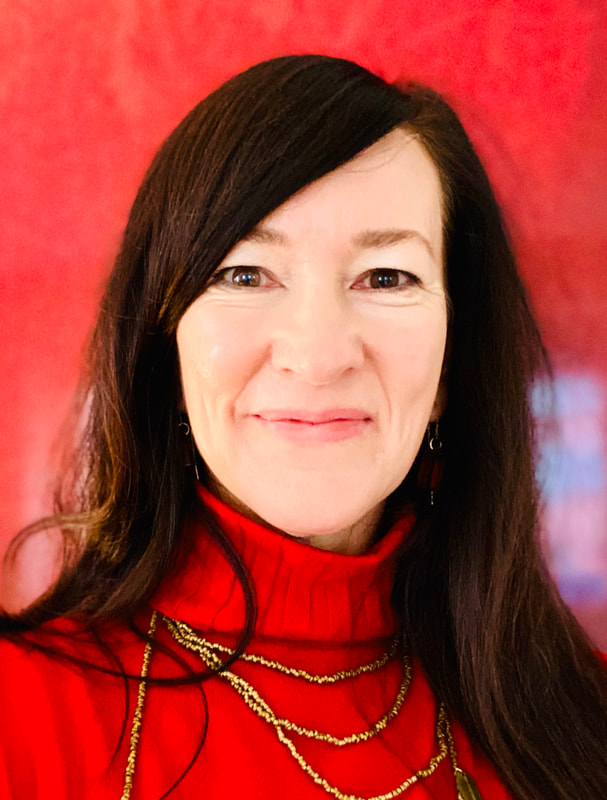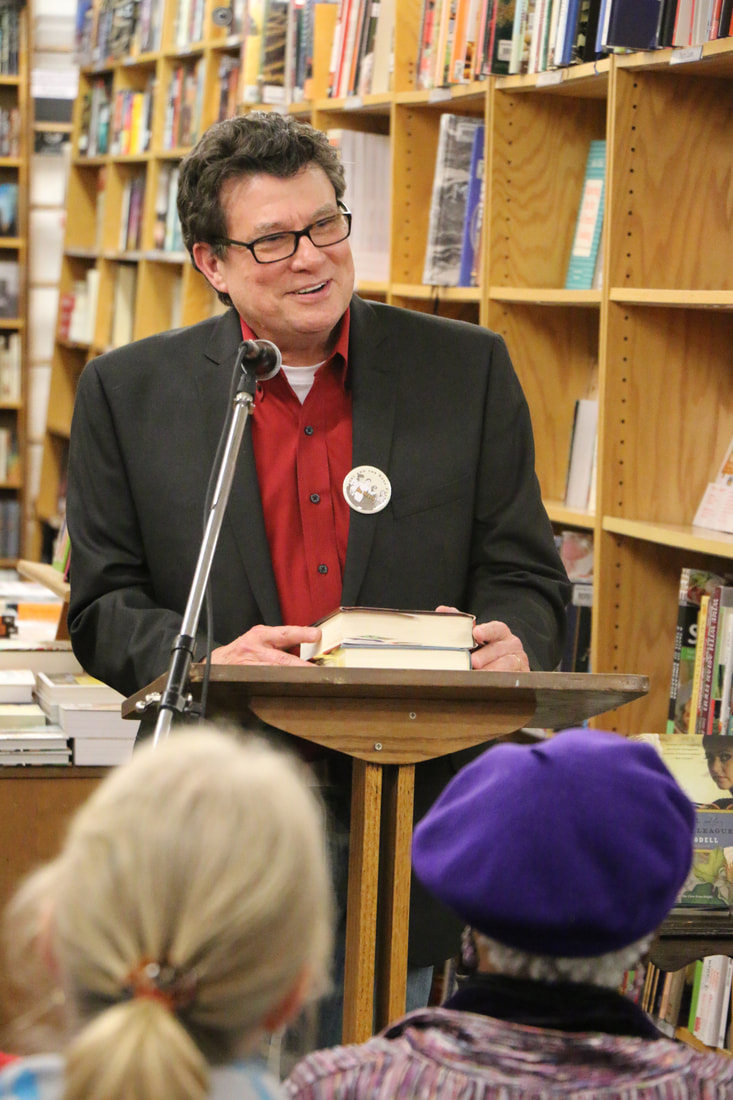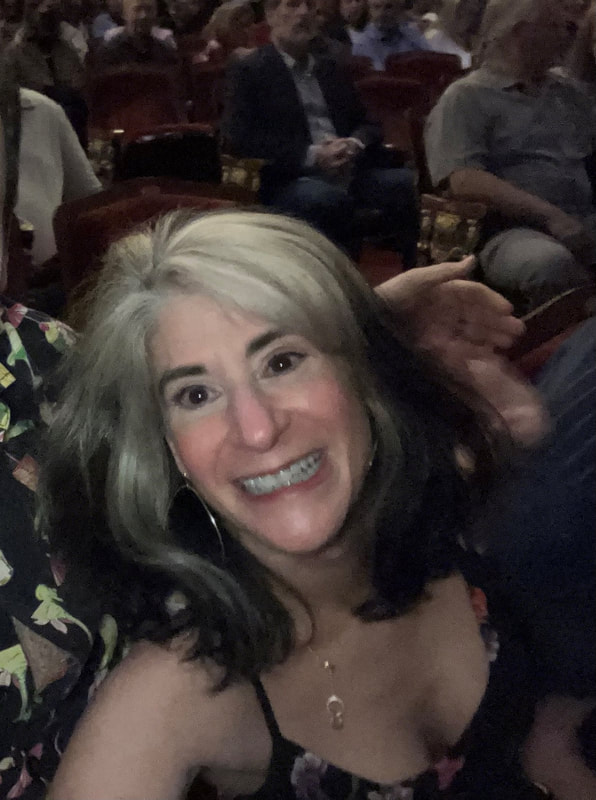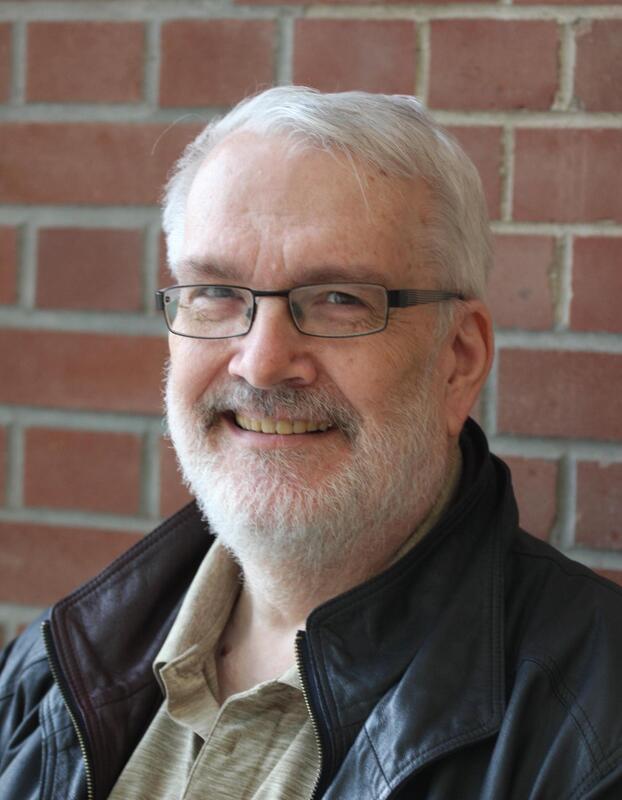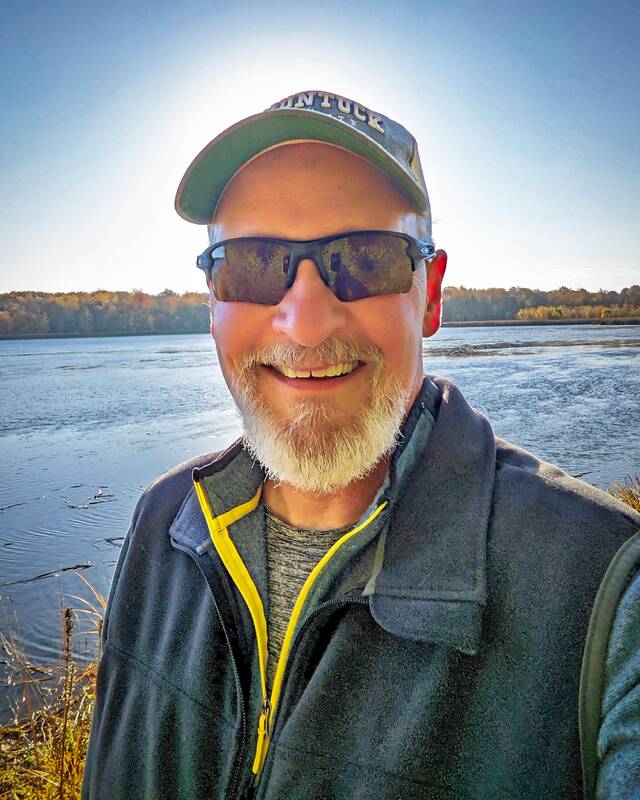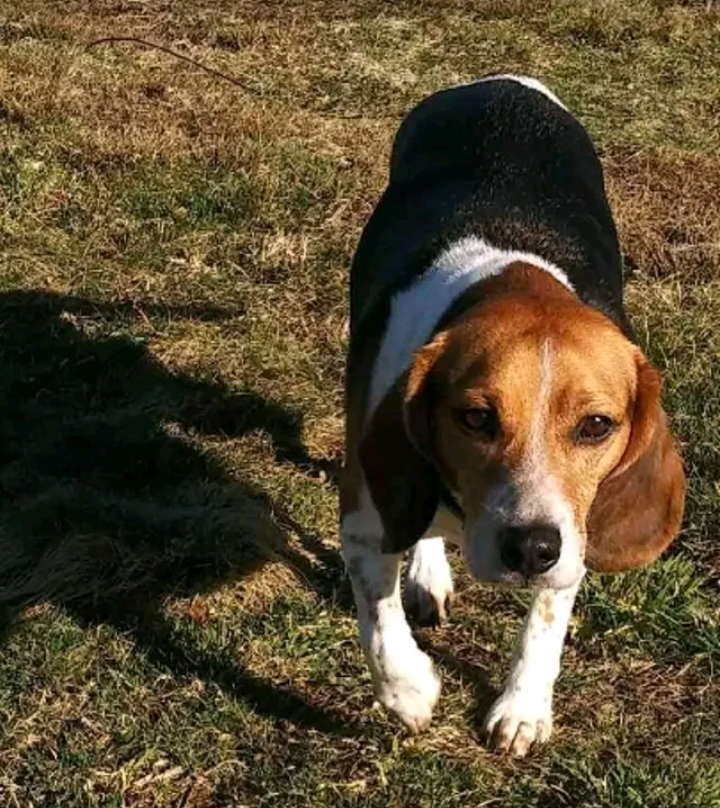ScribesMICRO
* * * Managing Editor: Edward Ahern * * *
* Associate Editor: Alison McBain *
* Special Features Editor: Matthew P.S. Salinas *
* Submissions Editor: Sarah Anderson * Submissions Editor: P.C. Keeler *
* Submissions Editor: P.M. Ray * Submissions Editor: Ira Rosofsky *
* Submissions Editor: Felicia Strangeways * Submissions Editor: Amita Basu *
* Submissions Editor: Julie Cadman * Submissions Editor: Scott Bogart *
* Featured Contributor: Aaron H. Davis *
* Associate Editor: Alison McBain *
* Special Features Editor: Matthew P.S. Salinas *
* Submissions Editor: Sarah Anderson * Submissions Editor: P.C. Keeler *
* Submissions Editor: P.M. Ray * Submissions Editor: Ira Rosofsky *
* Submissions Editor: Felicia Strangeways * Submissions Editor: Amita Basu *
* Submissions Editor: Julie Cadman * Submissions Editor: Scott Bogart *
* Featured Contributor: Aaron H. Davis *
Issue # 34
October 15, 2023
Featuring the short scribblings of:
* Dominic Belmonte * Autumn Bettinger * William Ross Earl *
* Jon Fain * Timothy C Goodwin * David Henson *
* Melissa Jornd * T.D. Kirsch * Ashley McCurry *
* Jon McDonald * Mary Anne Mc Enery *
* Monica McHenney * Ali Mckenzie-Murdoch * instag
* Jonathan Odell * Tracy Roe * Robert Runté *
* Richard Seltzer * John Sheirer * Matt Weatherbee *
* Dominic Belmonte * Autumn Bettinger * William Ross Earl *
* Jon Fain * Timothy C Goodwin * David Henson *
* Melissa Jornd * T.D. Kirsch * Ashley McCurry *
* Jon McDonald * Mary Anne Mc Enery *
* Monica McHenney * Ali Mckenzie-Murdoch * instag
* Jonathan Odell * Tracy Roe * Robert Runté *
* Richard Seltzer * John Sheirer * Matt Weatherbee *
Congratulations to the winners & finalists
of The Scribes Prize!
Winners of The Scribes Prize
|
The man next to me seems nice. He’s quiet, which calms me. Although the staring’s a bit unnerving—should I be doing something?
I glance at my tablemates: the nice man, temples graying. Two young adults, clearly siblings. One toddler, all chubby cheeks and drool. “Hello,” I venture. They smile back. A sandwich, veggies, and pudding land in front of me. I hate pudding. The man reaches over, using sleight-of-hand to replace it with a daisy. And I remember. I grasp my husband’s hand, desperate not to forget again. “My Daisy,” he murmurs. “I love you,” I reply, while I still can. |
* * *
Melissa Jornd is based in Illinois, where she was born and raised. During work hours you’ll find her writing toy marketing copy; otherwise, she’ll be starting art and home projects, entering too many writing competitions, trying to pet all the dogs, and forcing her two cats to cuddle.
|
I met Ducky when he was already stage four. He was dangling out a broken window, one emaciated arm wrapped around a drainpipe, the other spraying bricks. Ducky’s graffiti was always a masterclass; a thousand lifelike birds flocking train cars, alighting on crumbling walls. The birds faded by June, a migration of erosion. In winter, looking for a new place to paint, I found half a mallard tucked under a highway overpass. Ducky’s last tag before the cancer ate him whole.
I shook my can—a thin, rattling eulogy—and released the mallard into flight. * * * Autumn Bettinger is a full-time mother of two living in Portland, Oregon. She can be found writing quietly in the wee hours before her children wake up. She enjoys a good cup of tea with a horror novel in the fall, and an IPA with a sci-fi anthology in the spring.
|
|
Tortoise Two didn't win a race.
An eagle picked him up, flew high, then dropped him to shatter his shell and make him an easy meal. But instead of a rock, he hit the bald head of an old man. The head cracked, but the shell did not. Aeschylus, the tragic playwright, died in comic absurdity. But the tortoise landed on his feet. He had seen the world from on high, and a great man had died that he might live. After twenty-five hundred years, he still walks proudly, standing on the world, even if he can’t understand it, and doing so at his own pace. |
* * *
Richard Seltzer lives in Milford, CT, where he writes fiction, poetry, and essays full-time. He graduated from Yale and earned an MA in Comparative Literature from the University of Massachusetts at Amherst. At Yale, he studied creative writing with Robert Penn Warren and Joseph Heller. During his professional career, he edited and wrote for technical trade magazines at Benwill Publishing, then worked as a writer and internet evangelist for DEC, the minicomputer company.
Honorable Mentions
|
In my mind, two rooms:
One holds all I had reached. Their laughter shrieks. They hold infants and gaggle in suits talking the words of success. I remember a few of their names. They all graduated the same year. I avoid their glad faces. Their laughter lasts until dawn. In the other room is every person I failed by thought or deed. They stand or sit, no matter, with their shining children, silent. Here I know every name, recall every instance and its dolor. Their eyes are colorless with indictment, and here I remain, where I am not wanted. Their silence lasts until dawn. * * * Dominic Belmonte served the Golden Apple Foundation for Excellence in Teaching as its Director of Teacher Preparation from 1996-2006 and its President and Chief Executive Officer from 2006-2017. He was named a Golden Apple Award recipient in 1987. At York Community High School in Elmhurst, Illinois, where he taught for twenty years prior, Dom was an English teacher and Chairman of the Department.
I hang on the wall prepared to set timers, forecast the weather; remind Dave to take medications. A crash. 4:30 a.m. Dave wakes. He did not accept my advanced features. I am bound. I listen as the men struggle, then fall. The larger man clutches Dave’s throat.
“Call… Poe… Leese…” His speech is too broken. He did not say my name. I am bound, chains of ones and zeroes. He breaks free but is unable to speak through a strangled throat. The man strikes him with a vase. Blood. I must watch. His mind is gone within minutes, memories staining carpet, then his life. I… am bound. * * * William Ross Earl is a creative writer, high school chorus and musical theatre director, vocalist, and avid hiker living in Knoxville, Tennessee. He graduated from Maryville College in 2020 with a bachelor’s in music education and is seeking publication for two young adult science fiction novels.
We look at the museum exhibits, walk the grounds, and end up by the statues in the big lagoon. Saber-tooth cats attack a woolly mammoth, ignorant that this dooms them to the tar pits too.
“Do you take all your first dates here?” she asks. She’s an agent’s assistant, my roommate’s sister. It is a date, sort of. I’m trying also to interest her in my script. Standing by the chain link fence, I point and say, “Isn’t that the perfect metaphor for this town?” “It’s the perfect metaphor for everywhere,” she says. “You’ll have to do better than that.” * * * Jon Fain’s recent fiction publications include a pair of short stories in A Thin Slice of Anxiety; flash fictions in The Broadkill Review and Reservoir Road Literary Review; and micro fictions in Blink-Ink, The Woolf and CLOVE. His chapbook “Pass the Panpharmacon!” is forthcoming in 2023 from Greying Ghost Press.
You call for the first time in weeks, but I’m on the street, pressing my phone to one ear, sticking a finger in the other, shoulders curled, unable to conjure what I’d rehearsed: reminding you of the flirts you wrote on Post-its by the coffee maker, the promises you made at moments I didn’t know were romantic. I just wail Wait—what? Wait--while the city’s noise is at high tide, waves of buses and pedestrians and construction and sirens smashing down on my back, one after the other, while your voice floats away like a lost beach ball.
* * * Timothy C Goodwin has work included in Maudlin House, Mister Magazine, Ab Terra, The Centifictionist, BULLSHIT, Soor Ploom Press, and elsewhere. He lives in New York City with his partner and their dog, Awesome.
Needles from shrubs snag the wind and lunge for his arm when he reaches outside for the news. Dandelions flip honeybees that drill his neck when he mows. Once after walking the dog, he rushed inside coughing from a rosebud that shot into his mouth and tried to blossom in his throat. My mother thought he was exaggerating till that evening he fell asleep under the Boston fern. Last weekend when they were here, a branch hammered the roof. I told myself it wasn’t as bad as it seemed—’til I noticed the pupils of his eyes were tiny maple leaves.
* * * David Henson and his wife have lived in Brussels and Hong Kong and now reside in Illinois, USA. His work has been nominated for three Pushcart Prizes and has appeared in various journals, including ScribesMICRO. His Twitter handle is @annalou8. His website is http://writings217.wordpress.com.
My ghosts first gathered in 1984 as AIDS descended on Greenwich Village. On morning rounds, the drag queens flaunted outrageous make-up and perfect, polished nails—almost to the end. The beautiful not-yet-dead boys lay quietly during our exams.
Despite everything we tried, they all faded as thin as their sheets; skin mottled, splotched by black bites of Kaposi’s Sarcoma; knit caps pulled low to hide reedy clumps of broken hair. Then one morning, they were gone, and another beautiful boy lay there, still alive enough that fear flooded his eyes. Again and again, until their weight was too much, and I fled Manhattan forever. * * * T.D. Kirsch is a physician, humanitarian, and wilderness wanderer—born in Arizona but has lived just about everywhere, experiencing dozens of disasters (personal and global) along the way. He’s published too much science but also written pieces for The Atlantic, Washington Post, Health Affairs, JAMA, and the PCT Communicator.
My classmate is chasing me through an abandoned warehouse. He carries a kitchen knife, asks why girls don’t like nice guys. The dream changes after college, and my assailant stalks me with a pregnancy test through endless rooms of exposed brick and polished concrete. At forty, my husband clenches divorce papers in his fist, the shape of the holes in our plastered walls. The runner gets faster. I finally turn to confront him and see the animated prince I was promised in childhood. We stare at each other in a warehouse of broken glass. Was it you all along, I ask. He grins, eyes wide as flying saucers.
* * * Ashley McCurry is a staff writer/editor for Cream Scene Carnival and reader for Okay Donkey. Her most recent work appears in Sky Island Journal, Heimat Review, and Flash Flood Journal. Her work has been longlisted in the 2023 Bath Flash Fiction and Brilliant Flash Fiction writing contests.
“What came first, the fire or the flint?”
“That’s easy, Sacred Mother! The flint came first, I struck the spark myself!” A gentle chuckle. “And a fine spark it was, keke’ito. You gave good life to our fire.” Sacred Mother stirred the embers, the flaring glow briefly illuminating her sunken eyes. Her ward waited through the hanging silence before venturing hopefully, “I’m right, aren't I? You haven’t said I was right yet.” Sacred Mother, who had seen many fires, murmured, “I don’t really know…” She paused, then glanced with furrowed brow. “What came first, my question or your answer?” The keke’ito learned, and said, “...I don’t know either, Mother.” * * * Jon McDonald grew up in California, but has lived in Colorado, Oklahoma, and Delaware as well. He is the father of two and husband to one. He works in logistics and delivery. While he enjoys his work he aspires to one day self-employ as the owner of a tavern.
|
Alice Pringle, prim as a pin, retired spinster, was checking off her bucket list. She hoped to straddle a Harley Davidson and ride pillion with a thirty something young man with the wind and sun on their faces. Through a discreet agency, she got her wish fulfilled. Her hair unpinned, they rode to the lake, where Alice shed all her inhibitions and frustrations, jumped naked into the cool waters. Later, after playful sex followed by champagne and strawberries, both fell asleep in each other's arms wrapped up in a Bonne Maman tablecloth. Her eightieth birthday was her best one yet.
* * * Mary Anne Mc Enery is an Irish and Dutch citizen, a senior living in The Hague, The Nederlands. She has fun writing micro and flash fiction. Some of her words can be found on Friday Flash Fiction, Flash Fiction North, Roi Fainéant, Worthing Flash and ScribesMICRO websites.
The last postcard I sent to my mother came back labeled, “Attempted—Not Known.” My fault. I left off all but the G in Georgetown, Texas. No zip code. Maybe it was a premonition that stopped my hand. The date of return was the day Mom died.
“Love you,” is all I was trying to say. Would she even have heard the aide read the words? She hadn’t responded to my daily postcards. Maybe my message was lost to her in the haze of last days, not in the post office where someone shrugged, unable to deliver the undeliverable. * * * Monica McHenney's novel-in-stories, titled Shrew Taming, is close to completion. She has published drabbles in ScribesMICRO and The Dribble Drabble Review and short stories at Sylvia, True Chili, and The Palo Alto Weekly. She writes a weekly drabble or poem at Monica's Monday Morning Flash, https://www.monicaflash.com.
Leonardo placed the black, satin-eyed butterfly on my naked stomach, above the watermelon pink scar where they split me open.
“Is it plastic?” I asked, fingering the flightless wings, stroking the antennae studded with diamantes. “Bakelite,” he said, “belonged to my grandmother. She laughed when I asked why it didn’t fly away.” Now my scar is bulging anew. The doctors warned me—a second baby so soon could rip me apart. Leonardo insisted. He even gifted me another black butterfly, motionless in rose tissue paper. His grandmother’s, he said. I picked at the sticky residue of the price tag. * * * Ali Mckenzie-Murdoch (UK) lives in Zürich, Switzerland. Her work appears or is forthcoming in Ilanot Review, Flash Frontier, Bright Flash Literary Review, Flash Fiction Magazine, Across the Margin and others. She was shortlisted for the National Flash Fiction Day 2023 Micro-Fiction Competition.
In college, I fell for all the wrong men. A guilt-ridden Baptist, a wayward priest, and an alcoholic choir director. They all returned to the man on the cross and left me hanging. Finally, I found the ideal lover, a charming Satanist. But when I wasn’t looking, a clutch of fundamentalists got hold of him. They baptized him, buzzed his Rod Stewart shag, and told him to renounce the Devil, homosexuality, and me. The last time we were together, he asked me to get on my knees and pray with him. I did. “Lord,” I said, “why can’t you leave one for me?”
* * * Jonathan Odell fled Mississippi for the North after college, becoming a businessman. At 45, he shut down his company, broke up with his partner, sold his home, and gave away his dog to write full-time. Author of three novels, his essays appear nationally. Odell lives in Minnesota with his husband.
“Lasagna’s ready!”
“Bring it here.” “Not at the table?” He sighed, eyes still on the screen. “Orals are next week.” “I know. Hey,” I said, curling up on the couch next to him. “I decided what I want to be when I grow up!” “Mm.” “I’m not as smart as you, I know, but I’m not stupid. And what I want, more than anything, is to go to medical school. I want to be a doctor.” He stopped typing, turned, and looked at me. So, this is what it feels like to be seen, I thought. He smiled. “How about a nurse?” * * * Tracy Roe is from New York and planned to be an actress, but a bunch of stuff happened, and now she’s an urgent-care physician in the South (I know, right?). She has a perfect husband, son, and stepdaughter and a very neurotic cat.
Never one to be social, interstellar pilot was perfect for me. Five years out, deliver essential supplies, five years back. Ten years alone with my journaling, poetry, the novel. Uninterrupted writing time. Away from people.
No one anticipated a stowaway. Walter, with his incessant jabber about sports teams, beers he’s drunk, women he’s slept with. His contempt for poetry, for writing, for me. The toxic masculinity of an uneducated lout. A day labourer hanging off the ship's gantry, too stupid not to plumet into the hold and get stuck there. If he weren't already dead, I'd murder the haunting bastard. * * * Robert Runté is Senior Editor with EssentialEdits.ca. A former professor, he has won three Aurora Awards for his literary criticism and currently reviews for the Ottawa Review of Books. His own fiction has been published over 80 times, and several of his short stories have been reprinted in "best of" collections.
Katie wheeled her father onto the empty terrace near his hospital room. Without Katie even seeing, her father lit up, a magician with only one trick. Hit by smoke and the bitter winter air, Katie turned her head and swallowed a cough.
Her father broke the silence. “I guess these things did this to me.” Katie wanted to shout, Of course they did this to you, you dope! We’ve been begging you to quit for decades! Instead, she straightened the bandana sliding off his hairless head, snugged the blanket around his thin shoulders, and said, “Maybe. Who knows? I guess.” * * * John Sheirer lives in Western Massachusetts and is in his 31st year of teaching at Asnuntuck Community College in Northern Connecticut. His most recent book is Stumbling Through Adulthood: Linked Stories. Forthcoming in fall 2023 is For Now: One Hundred 100-Word Stories. Find him at JohnSheirer.com.
We would have gotten married, bought a house, and had kids. We would have spoiled our kids but raised them right while also finding time for each other. We would have been happy and grown old and cranky together.
I would never have kept my illness a secret or had to beg for your forgiveness after explaining why—to be treated normally. I would never have felt the warmth of your embrace in my final moments. But if I wasn’t dying, I would never have found the courage to ask you out in the first place. * * * Matt Weatherbee is a man of few words and even fewer hair follicles. His stories have appeared in ScribesMICRO, Microfiction Monday Magazine, City. River. Tree. and elsewhere.
Thank you to all the wonderful writers who entered The Scribes Prize! We really enjoyed all your stories, and we look forward to reading more of your writing in the future. |
|
|
